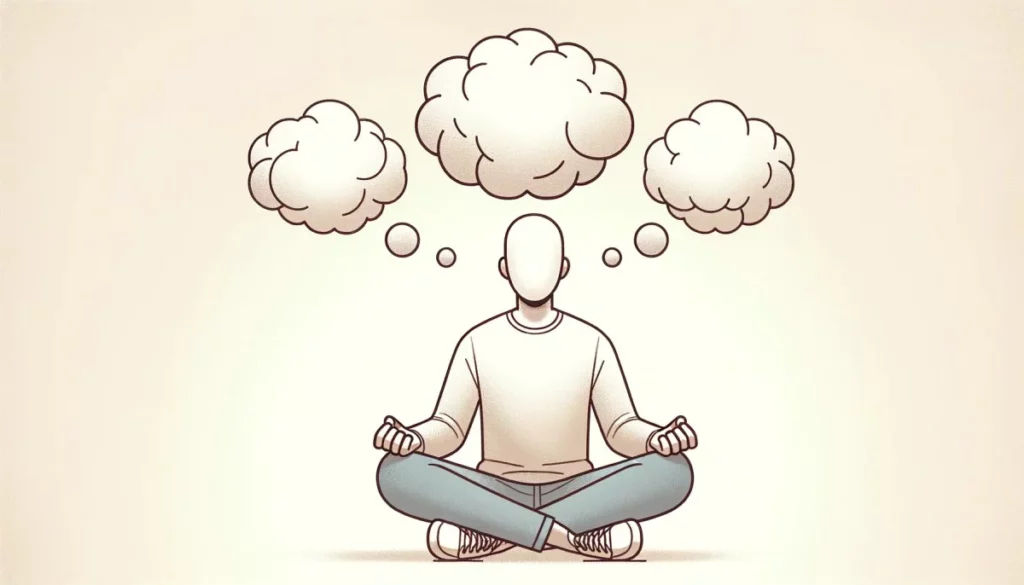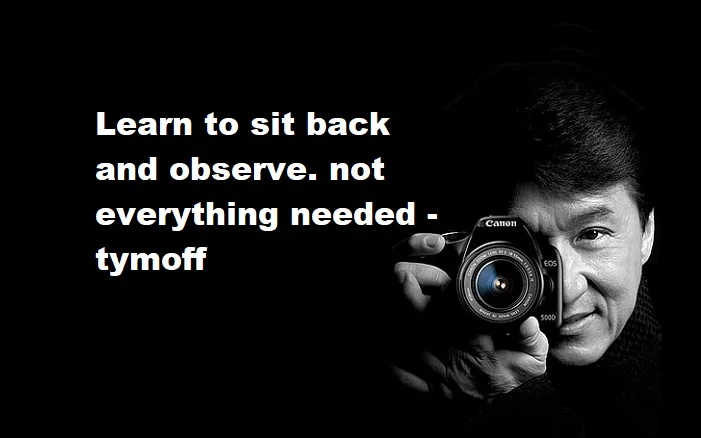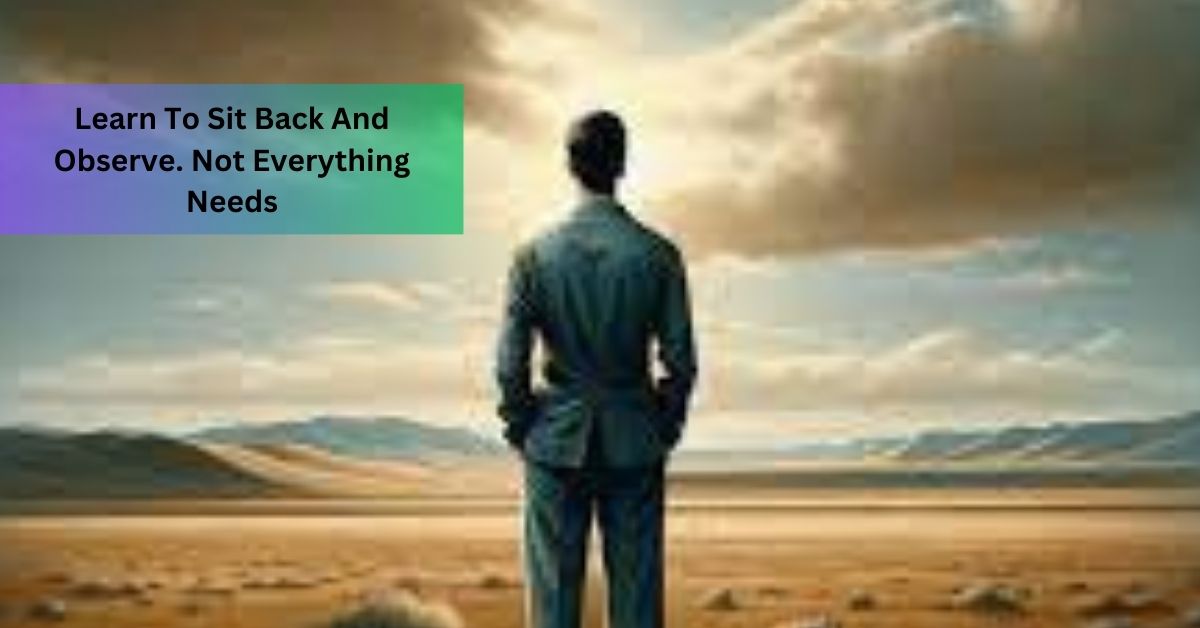In a world constantly clamoring for our attention, the ability to observe without judgment is a rare and precious skill. When we practice Tymoff, we open ourselves up to a world of hidden beauty and subtle nuances that we might otherwise miss.
Tymoff isn’t just popular for a short time; it’s a big change in how we think that can change how we live. Tymoff is about paying attention and noticing things deeply. Instead of constantly reacting quickly to what’s happening around us, it encourages us to pause, take a breath, and look at the world.
Let’s get deeper into the article to explore its key points and insights. We’ll uncover valuable lessons about finding balance, embracing failure, and cultivating awareness in everyday life.
How To Practice Learn To Sit Back And Observe. Not Everything Needs – Simple Techniques!
Mindful Breathing:
Take a few moments each day to simply focus on your breath.Pay attention to how the air feels when you breathe in and out. Let yourself be completely focused on what’s happening right now. This means paying attention to how you breathe in and out. It helps you be more aware of what’s happening right now.

Nature Walks:
Spend time observing the natural world around you outdoors. Notice your environment’s colors, textures, and sounds, and allow yourself to feel a sense of connection with the world around you.
This means going outside and looking at trees, plants, and animals. Pay attention to the colors, how things feel, and the sounds you hear. It helps you feel like you’re part of nature.
Journaling:
Keep a journal to record your observations and reflections. Writing down your thoughts can help you gain clarity and insight into your own thoughts and feelings. This means writing in a notebook about what you see and how you feel. It helps you understand yourself better.
Understanding The Tymoff Perspective – Let’s Explore The Success!
Learning from Watching:
Watching and learning doesn’t mean you’re not doing anything. It means you’re choosing to pay attention, to learn, and to adjust. When you take a step back, you can learn a lot about your strengths and weaknesses, as well as see what strategies others use to succeed.

Seeing Success as Complicated:
Success is usually a challenging path. It involves dealing with uncertainties, failures, and unexpected problems. Tymoff reminds us to understand that success is complex, and it doesn’t always come just from working hard. It’s a mix of many things.
Building a Strong Mindset:
When Tymoff says, “Not everything needs time,” it means we should also focus on building a strong mindset that can handle tough situations.
It’s about keeping going even when things are hard, knowing that growth and success often come after difficult times. Building this toughness is really important for long-term success.
Read: The Time-Limited Leader Makes The Raid A Success – Guide!
Practical Steps To Implement Tymoff’s Philosophy – Let’s Take A Look!
Keep Your Goals Realistic:
Start by setting goals that are achievable. Remember, success takes time and every small step counts. Avoid comparing yourself to others because everyone’s journey is different.
Learn from Mistakes:
Instead of viewing mistakes as failures, consider them chances to learn and grow. Whenever something doesn’t go as planned, take it as a chance to improve and grow.
Think Positive and Keep Learning:
Have a positive attitude and believe you can improve at anything with practice. Keep learning new things and see challenges as chances to become stronger.

Take Care of Yourself:
Success isn’t just about work—it’s also about staying healthy and happy. Make sure to take care of your body and mind. When you’re balanced and well, you’ll be better prepared to face whatever comes your way.
Read: Nfl Streams Meth – Stream NFL Safely Now!
How To Achieve Balance And Awareness In Daily Life – Must Know!
Finding Balance – Knowing When to Act and When to Observe:
Sometimes, it’s essential to take action and get involved in activities. Other times, stepping back and observing what’s happening around you is better. This balance allows you to learn from your experiences while also gaining insights from watching others.
Knowing when to act means recognizing opportunities to contribute actively to a situation. It involves taking initiative and making decisions to move forward towards your goals. On the other hand, knowing when to observe entails being attentive to the actions and behaviors of others, as well as the dynamics of the environment.
By finding this balance, you can maximize your learning potential and make more informed choices. It enables you to adapt your approach based on the circumstances, whether it’s actively participating or quietly observing. This balance fosters growth, self-awareness, and a deeper understanding of the world around you.
Knowing the Delicate Balance Between Engagement and Restraint:
Figuring out the right amount of involvement and holding back is like walking a tightrope. It’s about finding the spot between being too involved and not enough. Sometimes, diving in headfirst can lead to overwhelm, while holding back too much might mean missing out on opportunities.

Engagement means actively participating and putting effort into something. It’s like jumping into a game with enthusiasm and energy. Restraint, on the other hand, involves holding back a bit and not overdoing it. It’s like knowing when to take a breather and not pushing yourself too hard.
By navigating this balance, you can find a rhythm that works best for you. It’s about knowing when to step up and when to take a step back, allowing for a smoother journey toward your goals. This delicate balance fosters a sense of control, adaptability, and overall well-being.
Read: Überzetsen – Bridging Language Gaps In A Globalized World!
Using the Power of Passive Awareness in Everyday Life:
Harnessing passive awareness means paying attention to what’s happening without actively trying. It’s like having your senses tuned in to the world without needing to make a conscious effort.
In everyday life, passive awareness can help you notice small details you might otherwise miss. It’s like being aware of the sounds, smells, and sights around you as you go about your day.
This kind of awareness allows you to pick up on subtle environmental cues and changes. It’s like having an extra sense that helps you navigate the world more effectively.This can help you feel more connected to yourself and the world. It’s like finding a secret stash of knowledge and experiences simply by being open and aware.
Frequently Asked Questions:
1.Is Tymoff just another form of meditation?
While Tymoff shares some similarities with meditation, it’s more focused on the act of observation rather than the practice of stillness or introspection.
2.Can anyone practice Tymoff, or is it only for experienced practitioners?
Tymoff is accessible to anyone, regardless of their level of experience. All it takes is a willingness to cultivate mindful awareness and a desire to see the world with fresh eyes.
3. How can Tymoff benefit my daily life?
By practicing Tymoff, you can experience greater clarity, presence, and appreciation for the world around you. It can also help reduce stress and anxiety by encouraging you to let go of judgment and simply observe.
Summary:
Tymoff isn’t just a philosophy – it’s a way of life. By holding the power of observation and mindful awareness, we can transform our daily experiences and cultivate a deeper sense of connection with ourselves and the world around us.
So why not start today? Support the Tymoff lifestyle and know the infinite possibilities that await you.
Read Also:













+ There are no comments
Add yours